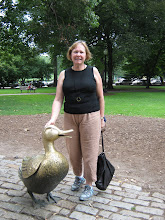Reading for Pleasure -a door to success
Today there is an article in our Sydney newspaper written by Jane Sullivan asking the question Why aren't more young people reading for pleasure? She suggests some reasons, admits to parents being time-poor and lacking in knowledge of what to read, talks about an AI app that writes stories for reading at bedtime. She does say that it is not ideal. Of course it is not ideal, reading to your children is also about the special bond that is established while you read and the chance to touch a book, talk about what is on the page and relate it to your own life. Reading to your child cannot be out-sourced to a device! They need to see you read. You have to model reading, so that your child thinks that you think reading is important and worthwhile doing.
Jane Sullivan mentions a report from the National Institute of Education in Singapore which recommends a number of strategies to tackle the problem of declining reading skills and enjoyment among young people.
• better access to books that reflect children's lives.
• support to enable them to choose books for themselves.
• quality time set aside for reading.
• opportunities to reflect and share their experience with other readers.
• development of a positive reader identity.
The emphasised words are me, not the report. All of these things point to the importance of school libraries and a knowledgable teacher librarian who is able to facilitate all of these strategies. There is a difference between a public library and a school library. The public librarian can certainly recommend books, but the teacher-librarian should know a child's interests, approximate reading ability and want to broaden their choices so as to increase their reading stamina, empathy and vocabulary.
Of course these strategies will be enacted upon by classroom teachers and parents as well, but the teacher-librarian needs to make this their priority. All school libraries should facilitate parent borrowing. Schools need to make it very easy for parents to find books to read to their children and if they can do it when they drop off or pick up their children they are more likely to do it.
I am the teacher-librarian in a school library that caters to preschoolers and children in Kindergarten to Year 2. This enables me to give the students access to to books that reflect their lives. All classes come to the library weekly, but the parents can come before and after school to borrow ten books at a time. Most parents come weekly or fortnightly. At the beginning of the year we encourage the families to take part in the Premier's Reading Challenge, but most parents keep coming even once they have finished the challenge. I also run parent workshops and have a parent newsletter which ensures they are well informed about what the library and library staff can offer them.
Learning to read is a partnership between home and school. Parents who read to their children daily long before school, set their children up for reading success. Then the school takes on the task of teaching children the important skills they need to decode, comprehend and evaluate what they read, while there is still a reading culture occurring at home and their is support with choosing books in the school library.
This week I attended a breakfast at which Natalie Wexler, a respected American educator spoke. She is a proponent of evidence-informed literacy education and has recently spoken about how 'teaching phonics is not enough'. At the end of her talk she was joined on the stage by Erica Stanford, the Minister of Education in New Zealand and Lorraine Hammond, an advocate for the Science of Reading and explicit instruction.
Erica Stanford spoke about the curriculum situation in New Zealand with much knowledge, passion and determination to get it right. I found this wonderful, but given the push towards a knowledge-rich curriculum, I thought it sad, that New Zealand had made the decision not to have primary-school-based libraries. When I visited New Zealand last, they were leaning towards bulk borrowing from a city-based school library where schools requested books and could keep them for the term. I wanted to ask her if this has changed.
Many states and Education systems in Australia are also closing school libraries or talking about why they are needed. Some schools have volunteer parents buy and loan the books. Many schools have also done away with time set aside for reading, such as USSR (Uninterrupted Sustained Reading) or DEAR (Drop Everything and Read) time, citing lack of time, but if we want students to read at home, we need to give them time to read at school.
Reading for Pleasure revolves around personal enjoyment and the inherent pleasure of reading itself. It is a voluntary and self-directed activity driven by individual interests, preferences, and curiosity. It is not bound by specific guidelines or requirements and allows readers to choose their own materials based on their personal tastes, preferences, and reading level. Before a child can read, the choice to read is made by parents or other adults such as teachers. Once a child can read adults need to make sure there is an environment where children choose to read.


No comments:
Post a Comment